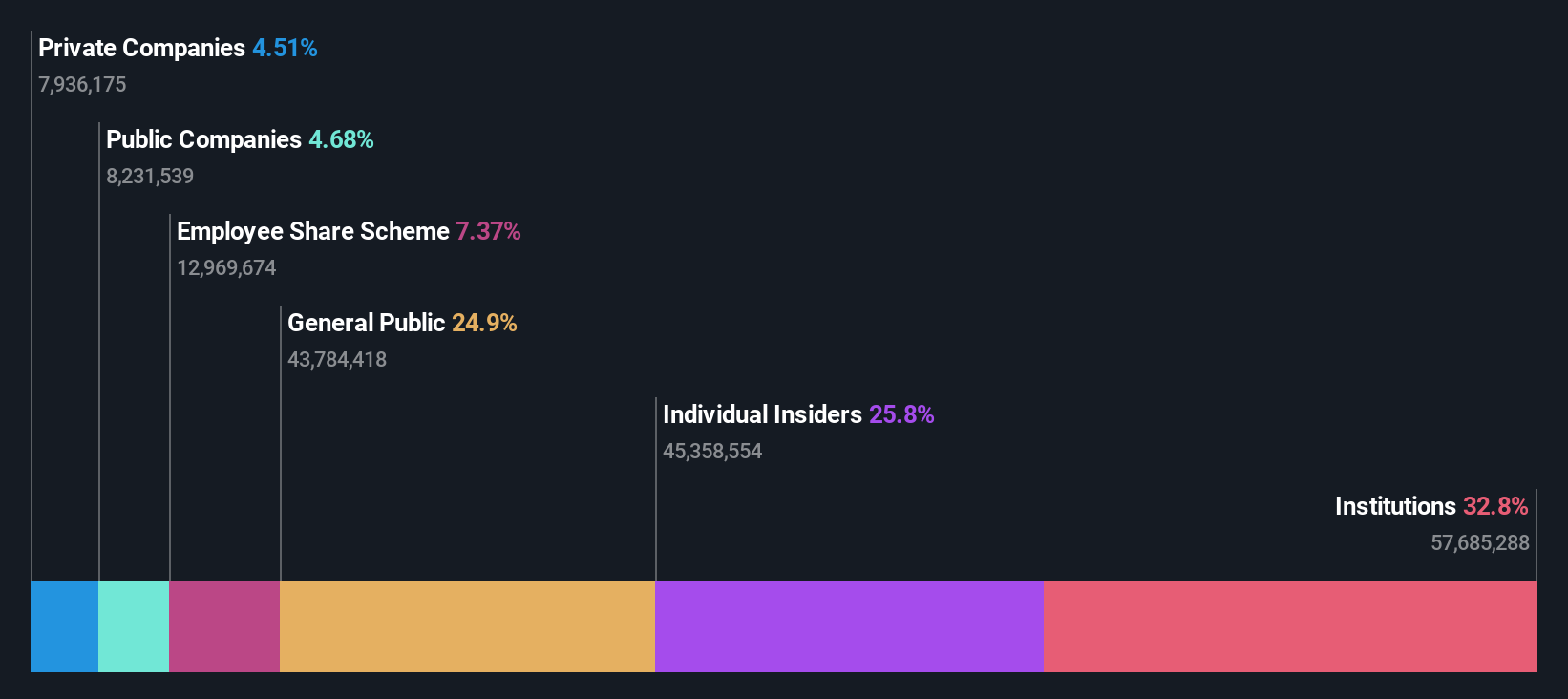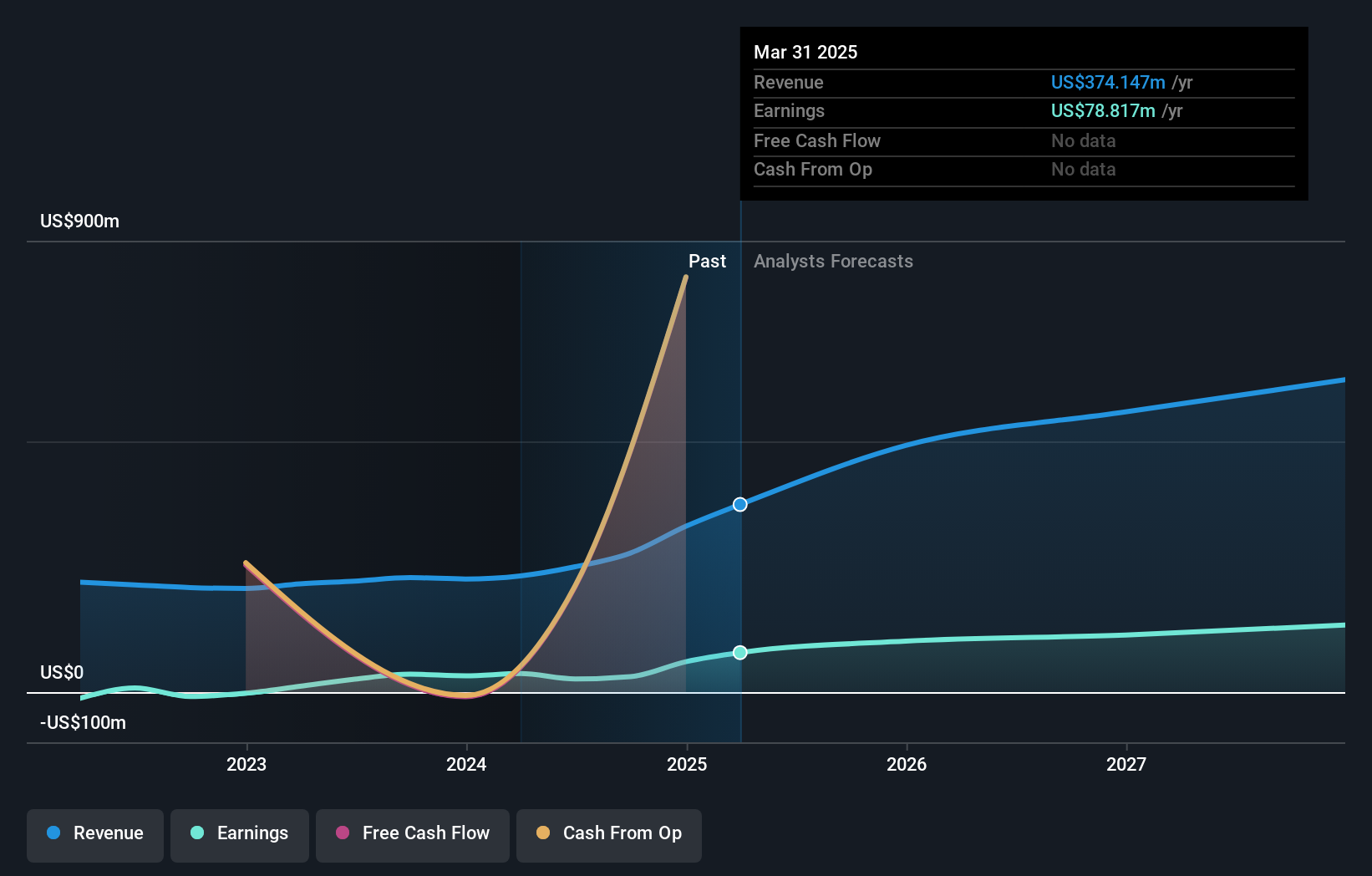Institutional investors are UP Fintech Holding Limited's (NASDAQ:TIGR) biggest bettors and were rewarded after last week's US$74m market cap gain
Key Insights
- Institutions' substantial holdings in UP Fintech Holding implies that they have significant influence over the company's share price
- A total of 12 investors have a majority stake in the company with 51% ownership
- 26% of UP Fintech Holding is held by insiders
A look at the shareholders of UP Fintech Holding Limited (NASDAQ:TIGR) can tell us which group is most powerful. And the group that holds the biggest piece of the pie are institutions with 33% ownership. In other words, the group stands to gain the most (or lose the most) from their investment into the company.
And things are looking up for institutional investors after the company gained US$74m in market cap last week. The gains from last week would have further boosted the one-year return to shareholders which currently stand at 173%.
Let's take a closer look to see what the different types of shareholders can tell us about UP Fintech Holding.
View our latest analysis for UP Fintech Holding

What Does The Institutional Ownership Tell Us About UP Fintech Holding?
Institutional investors commonly compare their own returns to the returns of a commonly followed index. So they generally do consider buying larger companies that are included in the relevant benchmark index.
As you can see, institutional investors have a fair amount of stake in UP Fintech Holding. This implies the analysts working for those institutions have looked at the stock and they like it. But just like anyone else, they could be wrong. When multiple institutions own a stock, there's always a risk that they are in a 'crowded trade'. When such a trade goes wrong, multiple parties may compete to sell stock fast. This risk is higher in a company without a history of growth. You can see UP Fintech Holding's historic earnings and revenue below, but keep in mind there's always more to the story.

We note that hedge funds don't have a meaningful investment in UP Fintech Holding. Looking at our data, we can see that the largest shareholder is the CEO Tianhua Wu with 12% of shares outstanding. Meanwhile, the second and third largest shareholders, hold 6.8% and 6.1%, of the shares outstanding, respectively.
A closer look at our ownership figures suggests that the top 12 shareholders have a combined ownership of 51% implying that no single shareholder has a majority.
Researching institutional ownership is a good way to gauge and filter a stock's expected performance. The same can be achieved by studying analyst sentiments. There are a reasonable number of analysts covering the stock, so it might be useful to find out their aggregate view on the future.
Insider Ownership Of UP Fintech Holding
The definition of company insiders can be subjective and does vary between jurisdictions. Our data reflects individual insiders, capturing board members at the very least. Management ultimately answers to the board. However, it is not uncommon for managers to be executive board members, especially if they are a founder or the CEO.
Insider ownership is positive when it signals leadership are thinking like the true owners of the company. However, high insider ownership can also give immense power to a small group within the company. This can be negative in some circumstances.
Our most recent data indicates that insiders own a reasonable proportion of UP Fintech Holding Limited. It is very interesting to see that insiders have a meaningful US$472m stake in this US$1.8b business. Most would be pleased to see the board is investing alongside them. You may wish to access this free chart showing recent trading by insiders.
General Public Ownership
The general public-- including retail investors -- own 25% stake in the company, and hence can't easily be ignored. While this size of ownership may not be enough to sway a policy decision in their favour, they can still make a collective impact on company policies.
Private Company Ownership
We can see that Private Companies own 4.5%, of the shares on issue. Private companies may be related parties. Sometimes insiders have an interest in a public company through a holding in a private company, rather than in their own capacity as an individual. While it's hard to draw any broad stroke conclusions, it is worth noting as an area for further research.
Public Company Ownership
We can see that public companies hold 4.7% of the UP Fintech Holding shares on issue. This may be a strategic interest and the two companies may have related business interests. It could be that they have de-merged. This holding is probably worth investigating further.
Next Steps:
I find it very interesting to look at who exactly owns a company. But to truly gain insight, we need to consider other information, too.
Many find it useful to take an in depth look at how a company has performed in the past. You can access this detailed graph of past earnings, revenue and cash flow.
But ultimately it is the future, not the past, that will determine how well the owners of this business will do. Therefore we think it advisable to take a look at this free report showing whether analysts are predicting a brighter future.
NB: Figures in this article are calculated using data from the last twelve months, which refer to the 12-month period ending on the last date of the month the financial statement is dated. This may not be consistent with full year annual report figures.
Have feedback on this article? Concerned about the content? Get in touch with us directly. Alternatively, email editorial-team (at) simplywallst.com.
This article by Simply Wall St is general in nature. We provide commentary based on historical data and analyst forecasts only using an unbiased methodology and our articles are not intended to be financial advice. It does not constitute a recommendation to buy or sell any stock, and does not take account of your objectives, or your financial situation. We aim to bring you long-term focused analysis driven by fundamental data. Note that our analysis may not factor in the latest price-sensitive company announcements or qualitative material. Simply Wall St has no position in any stocks mentioned.
 Wall Street Journal
Wall Street Journal